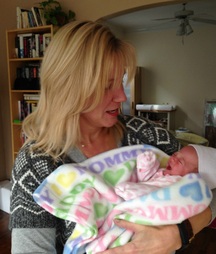
Closing the word gap between rich and poor
A study in the 1990’s found that by the age of 3, children born into low-income families heard roughly 30 million fewer words than children who come from more affluent families. This “word gap” contributed to the widening achievement gap in education and life for many of these children. Researchers found that mandatory preschool for all children would not close the gap because the majority of the words learned in this study were before the age of 3. As I read this, it brought to mind studies I have heard about the importance of shared family meals.
I have read where more language development happens more at the family dinner table than any other regular interaction with your child - including reading to them. (Check out this video: The Value of Family Dinner) Yes, reading to them is valuable but the language is limited to the words on the page. When families gather around mealtime they are interacting with each other and sharing their daily experiences. Quality meal time conversation includes everyone. Children hear words that describe their parent's feelings, work life, and ideas. Those kinds of words and ideas are not normally included in children's books. Listening, conversation skills and empathy are also learned around the dinner table. Children learn that the world is larger than their lives and ideas.
Unfortunately shared mealtime in families has become the exception in many homes where it used to be the rule. More parents work shifts that conflict with this time of day. One parent may be consistently missing family meals or out of necessity parents may be leaving something for children to heat up for themselves. Shared meals are also difficult for families who are busy in a different way - through the abundance of enrichment activities. These families may not eat together because everyone is going in a different direction doing their own activities.
I have talked to parents whose children participate in their share of enrichment activities. Yes, they are busy. But they also have found a way to regularly eat dinner together. They have prioritized this time as a non-negotiable. And in families where eating supper is not a shared activity, they make sure everyone is present at another time like breakfast. Those parents realize it is not so much the time the meal happens that is important but the relationships that are built in those shared moments.
Closing the word gap cannot be solved solely by family meals – but it is a start. In some families it may seem like everyone sitting down together at the same time for a meal is as difficult as climbing Mt. Everest. But imagine the benefits to your children and your family: your little ones get a head start in school, your growing children learn conversation skills, and everyone shares more in each other’s life. You may even feel more like a family – just by sharing a meal!
~Pam


